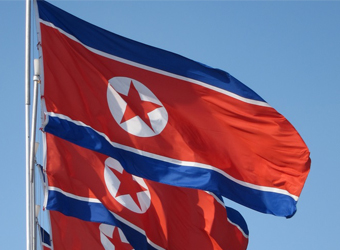The latest U.N. sanctions against North Korea are an act of war and tantamount to a complete economic blockade against the country, North Korea’s foreign ministry said on Sunday, threatening to punish those who supported the measure.
The U.N. Security Council unanimously imposed new sanctions on North Korea on Friday for its recent intercontinental ballistic missile test, seeking to limit its access to refined petroleum products and crude oil and its earnings from workers abroad.
The U.N. resolution seeks to ban nearly 90 percent of refined petroleum exports to North Korea by capping them at 500,000 barrels a year and, in a last-minute change, demands the repatriation of North Koreans working abroad within 24 months, instead of 12 months as first proposed.
The U.S.-drafted resolution also caps crude oil supplies to North Korea at 4 million barrels a year and commits the Council to further reductions if it were to conduct another nuclear test or launch another ICBM.
In a statement carried by the official KCNA news agency, North Korea’s foreign ministry said the United States was terrified by its nuclear force and was getting “more and more frenzied in the moves to impose the harshest-ever sanctions and pressure on our country”.
The new resolution is tantamount to a complete economic blockade of North Korea, the ministry said.
“We define this ‘sanctions resolution’ rigged up by the U.S. and its followers as a grave infringement upon the sovereignty of our Republic, as an act of war violating peace and stability in the Korean peninsula and the region and categorically reject the ‘resolution’.”
North Korea on Nov. 29 said it successfully tested a new ICBM that put the U.S. mainland within range of its nuclear weapons.
North Korea’s nuclear weapons are a self-defensive deterrence not in contradiction of international law, its foreign ministry added.
“We will further consolidate our self-defensive nuclear deterrence aimed at fundamentally eradicating the U.S. nuclear threats, blackmail and hostile moves by establishing the practical balance of force with the U.S,” the ministry said.
“The U.S. should not forget even a second the entity of the DPRK which rapidly emerged as a strategic state capable of posing a substantial nuclear threat to the U.S. mainland,” it added, using the country’s official name, the Democratic People’s Republic of Korea.
North Korea said those who voted for the sanctions would face Pyongyang’s wrath.
“Those countries that raised their hands in favor of this ‘sanctions resolution’ shall be held completely responsible for all the consequences to be caused by the ‘resolution’ and we will make sure for ever and ever that they pay heavy price for what they have done.”
Tension has been rising over North Korea’s nuclear and missile programs, which it pursues in defiance of years of U.N. Security Council resolutions, with bellicose rhetoric coming from both Pyongyang and the White House.
In November, North Korea demanded a halt to what it called “brutal sanctions”, saying a round imposed after its sixth and most powerful nuclear test on Sept. 3 constituted genocide.
U.S. diplomats have made clear they are seeking a diplomatic solution but proposed the new, tougher sanctions resolution to ratchet up pressure on North Korean leader Kim Jong Un.
China, with which North Korea does some 90 percent of its trade, has repeatedly called for calm and restraint from all sides.
The Chinese Foreign Ministry on Saturday said that the new resolution also reiterated the need for a peaceful resolution via talks and that all sides needed to take steps to reduce tensions.
Widely read Chinese state-run tabloid the Global Times said on Saturday that the tougher resolution was aimed at preventing war, and noted the U.S. had compromised with no indication the United Nations could grant the United States permission for military action.
“The difference between the new resolution and the original U.S. proposal reflects the will of China and Russia to prevent war and chaos on the Korean Peninsula. If the U.S. proposals were accepted, only war is foreseeable,” it said in an editorial. Source: Reuters
Source: Reuters


